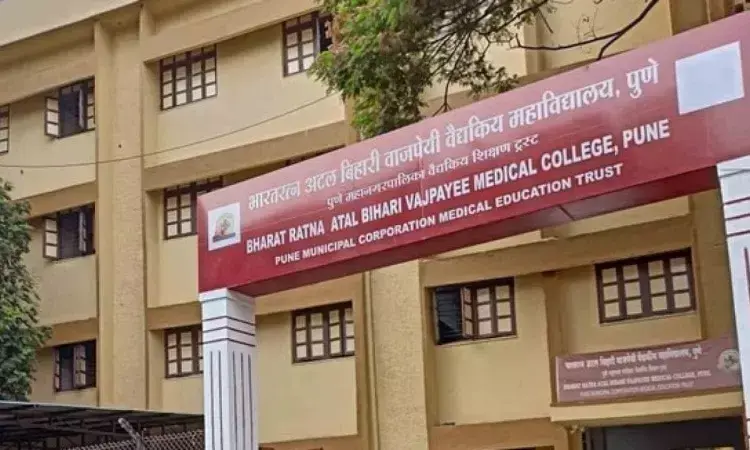
NMC and MUHS issue multiple warnings; students allege lack of clinical exposure despite high fees
Pune: The Pune Municipal Corporation’s (PMC) Bharat Ratna Atal Bihari Vajpayee Medical College is grappling with critical shortages in teaching faculty, medical infrastructure, and patient footfall at its affiliated Kamla Nehru Hospital — a situation that is severely impacting the education and clinical training of its MBBS students.
Four years since admitting its first batch, the institution still lacks essential facilities such as a functioning Intensive Care Unit (ICU), operational surgical theatres, and adequate laboratory setups. These gaps, coupled with a shortage of nursing and sanitation staff, have raised serious concerns about the college’s compliance with regulatory norms.
Despite students paying steep annual fees ranging from ₹7.5 lakh (state quota) to ₹22.5 lakh (institutional quota), many allege a lack of exposure to complex clinical cases and critical subjects. One fourth-year student expressed regret about transferring to PMC’s medical college, citing a total absence of forensic and toxicology instruction — mandatory components of the third-year syllabus. “We attended just one autopsy session at YCM Hospital since Kamla Nehru lacks a dead house,” the student said.
The National Medical Commission (NMC) and the Maharashtra University of Health Sciences (MUHS) have issued multiple show-cause notices this year questioning the institution’s compliance. NMC Chairperson Dr. BN Gangadhar told the Times of India that such notices serve as standard verification tools post-approval, though he did not comment on this specific case.
Under NMC norms, a 430-bed hospital like Kamla Nehru must maintain a 75% bed occupancy to support medical education. However, this requirement is reportedly unmet due to the hospital’s non-functional OTs and low inpatient numbers.
MUHS Pro Vice-Chancellor Dr. Milind B Nikumbh emphasized that while affiliation was granted based on the college’s undertaking to meet standards, non-compliance could lead to its cancellation. “NMC requires 80% of the approved teaching staff to be in place,” he added.
In an attempt to address the shortfall, PMC has floated 23 advertisements to recruit staff on a temporary basis. Commissioner Naval Kishore Ram acknowledged that challenges remain, especially in hiring reserved-category faculty. “We’ve been allowed to appoint unreserved-category doctors temporarily for 11 months, and are resolving technical concerns raised by NMC regarding cadavers and lab infrastructure,” he noted.
Dr. Shilpa Pratinidhi, the college’s acting dean, admitted that 83% of current faculty are working on a temporary basis. Out of 99 sanctioned class-I faculty posts, only 17 have been filled permanently. “We urgently need 25 more professors, assistant professors, and associate professors across 22 departments,” she said, noting that walk-in interviews are held frequently.
During a recent inspection, the PMC commissioner directed officials to fast-track the construction of permanent college and hostel buildings located on the Naidu Hospital campus. PMC’s Chief Public Health Officer Dr. Nina Borade confirmed that construction deadlines are being closely monitored. “We plan to appoint temporary unreserved-category faculty wherever reserved-category candidates are unavailable, as allowed under NMC rules,” she added.
Additional Municipal Commissioner Pradeep Chandran revealed that the institution is planning to shift some classrooms to its new Naidu Hospital wing by August. “We currently have 400 enrolled students and plan to inaugurate two wings for the incoming batch in the new building,” he said.

